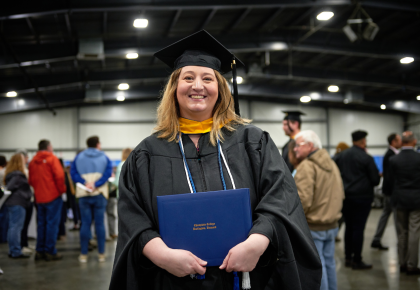Take SOCI-110
Get Started in Sociology
Champlain College Online offers a Bachelor of Arts (BA) degree in Sociology to help students understand human social behavior, group formation and potential for social change. This program is designed to be flexible and includes advanced electives from psychology and criminal justice to encourage cross-disciplinary thinking, allowing students to gain a broad understanding of the sociology field. The BA in Sociology emphasizes practical, real-world applications of theoretical concepts throughout the curriculum and culminates in a capstone experience. The program-specific courses explore various aspects of sociology, such as the sociology of community, evolving family frameworks, and social problems. Students will be on a pathway to pursue careers in human and social services, government, education, healthcare, and criminal justice.
Finish your program faster with credit for prior learning and experience.
Differentiate your degree and get your resume noticed with an added certificate. Speak with an advisor for information.
Build Your Career Future
This versatile sociology degree offers a breadth of applicability across the professional world. Graduates of the BA in Sociology will be prepared for further academic study in the field, and gain a foundation for future careers in business, social welfare, criminal justice, and education.
Program Curriculum
Having a bachelor’s degree can improve your long-term career prospects. Learn more about Champlain's 100% online Sociology degree, designed for your schedule.
Graduates of the sociology bachelor of arts program are required to complete the following courses.
Sociology Core Courses (21 credits)
Foundation Core Courses (15 credits)
Program Electives (12 credits)
General Education Courses (42 credits)
General Electives (30 credits)
In this class, students will explore how social relationships, groups, societies and culture develop and change over time. From a sociological theory foundation and employing the sociological imagination, students will examine the impact of social structures, institutions, and systems on individual lives. Students will apply sociological research methods to investigate sociological phenomena in their own lives.
In this course students will discuss theoretical explanations for contemporary social problems in the U.S. and other societies. From a sociological orientation, students will analyze root causes and consequences of those problems and debate potential solutions. Topics may include addiction, crime, poverty, mass media, family, war and terrorism, aging, and science and technology. Employing social science research approaches, students will strategize potential responses or solutions to those problems.
Prerequisites
What, who and where is community and how does it form and change over time? Students will question how communities develop and can shift (e.g. urban sprawl). What is the impact of such shifts on the people who live in those communities? Students also explore how communities develop, how people organize to create or respond to change, and how communities build resilience in response to challenges.
Prerequisites
Take SOCI-110
This course explores the complex and evolving relationship between human beings and technology. Through a multi-disciplinary approach that draws on fields such as sociology, psychology, philosophy, and history, students will examine the ways in which technology has shaped human culture, identity, and values, as well as how humans have influenced and continue to influence the development, adoption and use of technology.
As society and culture evolve, so does the definition of family. In this course, students will explore historical patterns of change in family structure, roles, and behaviors using the sociological perspectives and theories of family. Students will critically assess the intersections of race, ethnicity, gender, sexual orientation, socio-economic status, and other dimensions of diversity in the context of the family. By engaging with empirical research and case studies students will critically analyze dynamic and evolving dimensions of family.
Prerequisites
Take SOCI-110
In this course students will explore the sociological perspectives on deviant behavior, examining societal norms, values, and power structures. Through theoretical frameworks, and by reviewing empirical studies students will investigate various forms of deviance including crime, deviant sub-cultures and non-conformity.
Prerequisites
Take SOCI-110
Medical sociology examines the interplay between social factors and healthcare systems, fostering insights for addressing health disparities, improving patient care, and shaping policy. In this course students will assess how social structures, cultural beliefs and economic factors influence the functioning of healthcare systems and medical practices as well as health outcomes. Students will explore how people's experiences and conceptualizations of health and illness are impacted by social factors such as social class, race and gender. They will evaluate the role of social institutions such as public health to address health outcomes of the community.
Prerequisites
Take SOCI-110
Students will learn about how social science research is conducted, including the research methods (quantitative and qualitative) typically used in the social sciences. Students will assess the alignment of various research methods and the research goal and ultimately practice planning, conducting, analyzing and interpreting research. Additionally, students will critically analyze existing research through the lens of ethics and social justice.
Students will learn how to create conditions for successful conflict engagement, a necessary skill for any professional. The course focuses on the foundational capacities to remain calm and connected with oneself and others. In this state students can access helpful ideas and responses and be their best selves regardless of environment. Improving facility for conflict creates stronger relationships and reduces fear. By the end of the course, students will understand that disagreement and difference can become a source of personal and interpersonal growth.
This course explores the intersections among race, class, gender and categories of difference. Students will explore theories of difference in their relation to topics such as education, work, poverty, and the criminal justice system. They will recognize how those intersections and structural inequalities show up in their chosen career fields and their civic and personal lives. Students will critically analyze inequality as a system rather than as an aggregation of individual identities.
Prerequisites
PSYC-100 or SOCI-110 or CRIM 100
Ethics refers to accepted standards of right and wrong that prescribe what humans ought to do in various contexts, typically in relation to rights, obligations/duties, benefits to society, fairness, consequences, and virtues. In this course, students will explore both theoretical and practical dimensions of ethics in order to 1) define ethics and identify ethical positions and principles, 2) critically reflect on how ethics impacts individual and collective responsibility, decision-making, and action, and 3) apply ethics to the personal, civic, and professional contexts.
Prerequisites
ENGL-110
Students in Social Sciences programs will synthesize their program-specific knowledge and apply that perspective to a real-world problem or opportunity within the scope of their academic program. Students will create an experiential project of their own design that responds to the need of either a specific organization or the field of professional study. The project may be designed based on indirect or direct evidence, supporting a project idea that addresses a real-world problem or opportunity.
Prerequisites
12 credits or fewer left to complete the degree
Take both of the following, plus any two 200+ level CRIM or PSYC courses.
This course examines substance abuse in the U.S. from a sociological framework. Students will deconstruct categories such as drugs, addiction, dependence, and abuse, and explore their contextualization and embeddedness in evolving historical and social dynamics. Students will analyze social, cultural, and structural factors influencing the development, perpetuation, and the personal, social and cultural impact of addictions and addictive behaviors.
Prerequisites
SOCI-110 and at least 9 additional credits of Psyc, and/or Sociology and/or Criminal Justice
Disasters can result from forces of nature, technological accidents, human intent, or a combination. In this course students explore the social dynamics and impacts of disasters on individuals, communities, and societies. Students will examine how disasters are socially constructed and debate how social structure, inequalities, and cultural factors shape and reflect both the vulnerability and response to disasters. Through case studies and theoretical frameworks, students analyze the complex relationships between human behavior, institutions, and the broader social context during and after disasters.
Prerequisites
SOCI-110 and at least 9 additional credits of Psyc, and/or Sociology and/or Criminal Justice
In addition to the following requirements, students must also complete 3 Credits of a General Education Elective (Any ARTS, COMM, CRIT, ECON, ENGL, HIST, MATH, PHIL, PSYC, SCIE, SOCI, MKCM 120, CRIM except CRIM-225)
This course introduces students to the foundational concepts needed to communicate effectively in writing for academic study and professional development. Students will also learn to read critically to evaluate an author's message. Students will be introduced to rhetorical modes and their role in the development of written communication. Students will also learn how to use revision strategies to create written communication that meets its intended purpose for its intended audience
This course builds on students' proficiency in the writing process and rhetorical modes to introduce the use of sources in written communication. Students will practice information literacy as they learn to determine information needs from sources, develop effective search strategies, and incorporate sources in written communication, legally and ethically.
Prerequisites
Complete ENGL-100
Starting with a frame of human communication as a dynamic system of interactions in which people make choices that impact their relationships, other people, and themselves, students will define theory-informed communication concepts and processes, and critically examine how they apply to everyday life across a variety of contexts. Students will reflect on how the theory, concepts and processes apply to their own lives in becoming competent communicators who are knowledgeable, skilled, and versatile.
This course examines the principles of effective small group interaction. Students will analyze group development stages and small group roles. They will identify and evaluate communication skills that enhance small group cohesion and problem-solving. Students will explain how conflict affects group processes and compare face-to-face versus digital collaboration environments. These skills prepare students to participate effectively in group settings across academic, professional, and community contexts.
Students will learn and apply critical inquiry skills to analyze persuasive communication created by others and to develop persuasive communication/arguments of their own to solve problems in professional, civic, social, and personal contexts. Specifically, students will learn to recognize fallacies in logic; apply inductive and deductive reasoning strategies to the interpretation and development of persuasive communication; evaluate the validity of sources; and develop logically sound persuasive communication. Students will explore the roles of self-awareness, empathy, and ethics in the context of critical inquiry and the development of arguments.
Prerequisites
Complete ENGL-110.
This course is an historical overview, and examination of the evolution of digital, film, and print media, and their functions. Students will identify and analyze contemporary problems of the media such as the legal, social, economic and psychological implications of their relationships with society. They also will examine the ways in which marketing and PR professionals utilize the mass media channels to reach their intended target audiences.
This course explores the complex and evolving relationship between human beings and technology. Through a multi-disciplinary approach that draws on fields such as sociology, psychology, philosophy, and history, students will examine the ways in which technology has shaped human culture, identity, and values, as well as how humans have influenced and continue to influence the development, adoption and use of technology.
This course introduces students to basic statistics for data literacy. With a focus on exploring real-world data, students will interpret numerical information and utilize the tools necessary to complete the entire statistical process: designing a study; gathering, organizing, and analyzing sample data; and making inferences about a population. Students will demonstrate data-driven decision-making and effective communication of numerical data.
Introduces students to the biochemistry and physiology of nutrition and exercise. Emphasis will be placed on human body systems such as musculoskeletal, digestive, respiratory and circulatory, and their relationship to nutrition and fitness. Students will also study the biochemistry of energy conversion as it relates to exercise physiology. Laboratory sessions are designed to reinforce, by a hands-on approach, the principles discussed in lecture. Course includes two laboratory hours per week.
Students will develop the ability to apply scientific methods to understand the natural world, to identify scientific aspects of daily life, and to evaluate the quality of scientific information based on its source and the methods used for its generation.
In this course, students will gain an introduction to classical mechanics and learn about motion, force, energy, and momentum. The course covers vectors, scalars, and coordinate systems, as well as kinematics in one and two dimensions, Newton's Laws of Motion, circular motion, and kinetic energy and work. Students also learn about potential energy and energy conservation, collision theory, rotational motion, moment of inertia, torque, rotational dynamics, and angular momentum.
This course will introduce students to major streams of social justice thought, including historical social justice movements, theoretical problems having to do with social equality, personal freedom, marginalization, and stigmatization, and the ways in which civic and professional communities respond to these issues.
With pressure and release, a window opens and closes, recording light on a sensor. The simple action captures the instinct, judgement, and skill of the person behind the lens. This class will begin a study of the art and craft of photography. Students will develop their vision and their understanding of how to achieve it. Solid skills will be learned and many doors will be opened.
A survey of the continuing change experienced in art since the 15th century. Students will examine how an image is achieved as well as the significance of the subject represented. Individual inquiry concerning the nature of art is encouraged.
Students learn to appreciate films through the critical analysis of various elements of mise-en-scene, cinematography, editing and sound. The course introduces the conventions of classical Hollywood cinema, considers the work of one major director (auteur), and surveys selected international and independent films. Students view and discuss films each week.
Students in the course will explore the cultural history of the music genre broadly referred to as rock. Students will explore the social, economic and political contexts that are influenced by and that influenced each style in the United States. By listening, watching, reflecting upon, discussing and writing, students will explore how music takes on meaning, personally, and culturally. Topics and themes include the relationships between and among gospel, country, funk, folk, disco, rap and hip hop; the role of business and technology in those relationships, and political or transgressive elements of rock music.
Specific application of common tools for writing in the working world. Students will be instructed in rhetorical strategies of professional writing including style, report formats, editing, document design, and integration of visual aids. Students will complete a semester-long writing project; oral and written reports associated with the process of problem-solving within the project will be included.
Prerequisites
ENGL-112 or COR-125
Students will learn how to create conditions for successful conflict engagement, a necessary skill for any professional. The course focuses on the foundational capacities to remain calm and connected with oneself and others. In this state students can access helpful ideas and responses and be their best selves regardless of environment. Improving facility for conflict creates stronger relationships and reduces fear. By the end of the course, students will understand that disagreement and difference can become a source of personal and interpersonal growth.
In this course, students will explore and apply writing principles and techniques to effectively interpret and write technical workplace materials. Students will enhance and gain skills to communicate business and technical information by producing instructions, describing processes, applying document design elements, creating and integrating illustrations, researching and writing proposals and formal reports, and presenting content for decision-makers.
This course provides students with a comprehensive overview of the American criminal justice system as comprising three essential components: law enforcement, the court system and corrections. Students will recognize that the field of criminal justice is interdisciplinary and they will outline and discuss the historical foundation of the criminal justice system. They will also explore social and ethical dimensions as they review real-world case studies.
In this course, students will explore broad, foundational knowledge in psychology, including its history, major theorists and a survey of psychology subfields such as developmental, cognitive and social psychology. Students will also describe and assess the role of ethics and social responsibility in the study and application of psychological theory and practices.
Additional Program Details
Graduates of the sociology bachelor's online degree program will demonstrate the following skills, knowledge, and competencies:
- Identify and describe theoretical foundations of Sociology.
- Interrogate societal factors contributing to social problems such as inequality, poverty and addiction and make recommendations for change.
- Analyze the influences on the formation and functioning of groups, communities and social institutions.
- Investigate social change from ethical and social justice lenses.
- Identify local and broad social issues and apply social science research methods to problem-solve and communicate potential solutions.
Design your own degree and enhance its value and focus by adding a certificate. Adding a certificate allows you to develop specialized skills, strengthen your résumé, and tailor your education to align with career goals. Choose from the undergraduate or graduate certificates on this page.
Note: To earn a certificate, you must speak with your advisor first. You must be officially enrolled in the certificate program before you complete the required courses in it — coursework completed prior to enrollment cannot be applied later, and certificates may not be added retroactively. Careful planning with an advisor is essential to ensure all policies and timelines are met.
Our admissions team seeks to admit students who:
- Demonstrate a solid academic foundation - a minimum 2.5 GPA is our recommendation, though exceptions may be made on a case-by-case basis for those who demonstrate a potential for academic success in other ways.
- Possess an aptitude for success in an online learning environment.
- Exhibit the ability to make a positive contribution to the Champlain College Online community.
To learn more about submitting transcripts, or requirements for home-schooled students, those educated abroad or returning students visit our Undergraduate Admissions page.
Our transfer credit evaluation team works hard to ensure you get the transfer credits you deserve, from a variety of sources including prior college credits, work experience and training, military training and experience, and more. Our goal is to help you graduate from Champlain College Online as quickly and affordably as possible. Visit our Transfer Credit Options page to learn more.
Champlain College Online's sociology faculty, led by program director Dr. Janet Morrison, are expert practitioners in their fields. Their industry expertise ensures that our curriculum is aligned with the needs of employers, and reflects the skills today’s professionals need for success. Classes led by our seasoned experts will give you real-world insight and create a rich community of career-focused learning.
Tuition & Costs
Online Undergraduate Tuition Fall '25 - Summer '26
Tuition & Costs
Online Undergraduate Tuition Fall '26 - Summer '27
* Alumni is defined, for this tuition rate, as any degree program graduate from Champlain College or Champlain College Online.
** Veteran rate effective Spring 2025, not retroactive
See the undergraduate cost of attendance and fees here
Affordability and Paying For Your Education
We provide a number of options to make your online education affordable, including preferred tuition for alumni, associate degree graduates, community college graduates, and military.
What Can You Do With a Degree in Sociology?
According to the Bureau of Labor Statistics (BLS), people with sociology backgrounds are predicted to experience a job growth rate of 5% from 2022 to 2032, which is faster than the average of all occupations. In 2022, sociologists held about 3,300 jobs, and around 300 openings for sociologists are expected each year, on average, over the next decade. Additionally, social and community service managers are projected to experience a job growth rate of 9% from 2022 to 2032, which is much faster than the average of all occupations.
https://www.bls.gov/ooh/management/social-and-community-service-managers.htm
https://www.bls.gov/ooh/life-physical-and-social-science/sociologists.htm#tab-1
Top Jobs for BA in Sociology Graduates
- Community Leader
- Community Service Manager
- Corrections Officer
- Human Resources Specialist
- Welfare Advocate
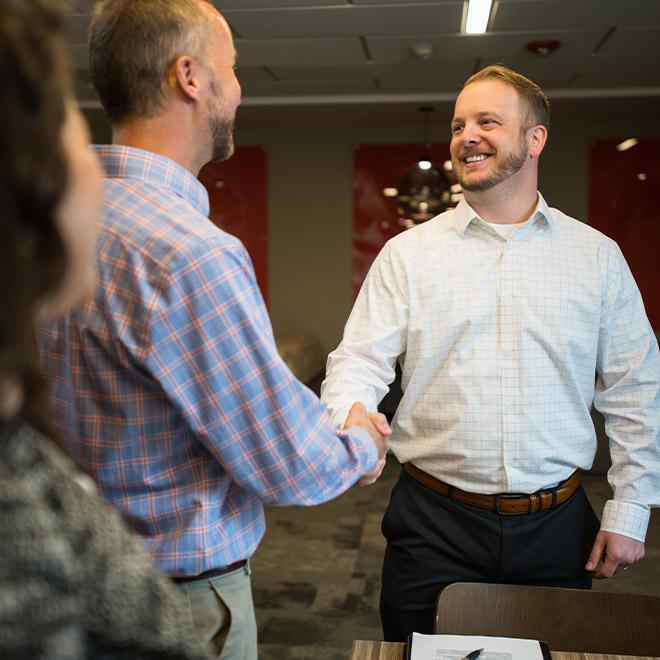
Why Champlain
Transferring Made Easy
"Transferring credits to Champlain was very easy. The staff worked really hard with me to find not just credits from other institutions that I had attended, but also life credits from things I had accomplished, and from past certifications."
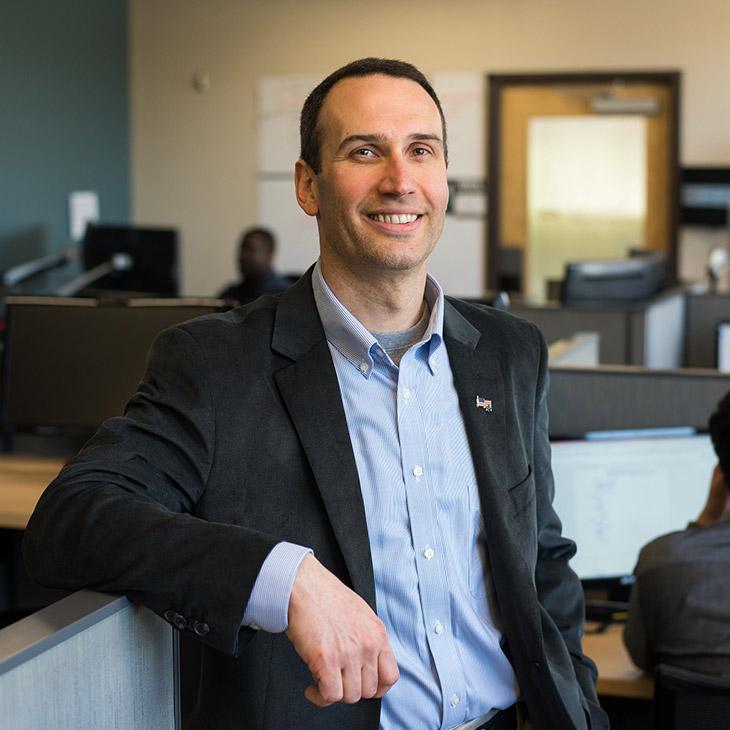
Academic Excellence and Recognition
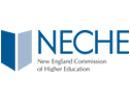
Regionally accredited by the New England Commission of Higher Education
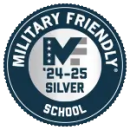
Designated as a Military Friendly School for our commitment to the military community
Ranked among the best by Tech Guide for game design and computer science
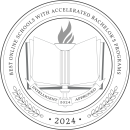
Named the among the best schools with accelerated bachelor's degrees by Intelligent.com
Meet the Program Director
Albert Orbinati, PhD
- Accounting (Certs, AS, BS, MS)
- Analytics (Certs, MS programs in Business, Finance, and Healthcare)
- Business (Certs, AS, BS, MBA)
- Finance (Certs, AS, BS)
- Healthcare (Certs, AS, BS, MS)
- Human Resource Management (Certs, AS, BS)
- Leadership (Certs, MS in Org. Leadership, MS in Digital Transformation Leadership)
- Management Information Systems (BS)
- Positive Organization Development (Certs, MS in Positive Org. Psych & Development)
- Project Management (Certs, MPM)
- Public Administration (Certs, MPA)
About
Dr. Albert Orbinati is an Associate Professor of Business and Department Chair for Business Programs at Champlain College Online. He has been teaching for over 20 years.
Prior to Champlain, Dr. Orbinati's roles have included Assistant Vice President of Online Learning and Continuing Education at Medaille University, Dean of the School of Professional and Continuing Education at Russell Sage College, and Director of Online and Non-Traditional Programs at Utica University. In addition to his career in higher education, Albert is a member of the US military and currently holds the rank of Lieutenant Colonel in the Vermont Air National Guard.
Dr. Orbinati holds a BA in Urban Planning from Binghamton University, an MA in Adult Education from Central Michigan University, an MBA from Champlain College, and a PhD in Adult Education from Capella University.
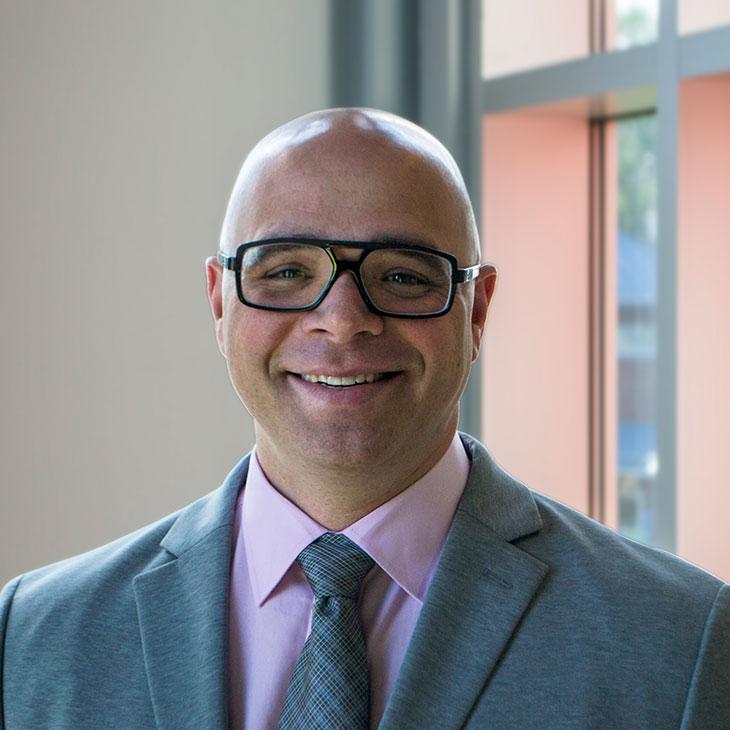
Frequently Asked Questions
Following are some frequently asked questions about our bachelor of arts in sociology.
The online sociology degree (BA) helps students understand social science, human behavior, group formation, and the potential for social change. It’s 100% online and flexible to fit your schedule.
Graduates from the online sociology degree program can work in various sectors, including human and social services, healthcare, government offices, education, nonprofit organizations, and criminal justice settings.
Yes, Champlain College Online is designated as a Military Friendly School. Learn more about our preferred tuition rates for active-duty military personnel on our website.
Sociologists are predicted to experience a 5% job growth rate from 2022 to 2032.
Yes, this degree provides a foundation for advanced study in the field or related areas of study. The online sociology degree is applicable across various professional fields, including business, social welfare, criminal justice, and education.
You May Also Be Interested In
Get Your Sociology Program Guide
Learn what you can expect from our online bachelor's in sociology program.

Download Program Guide
I acknowledge that, by clicking the "submit" button, I am giving my express written consent to Champlain College and its representatives to contact me about educational opportunities via email, text, or phone, at the phone number above, including my mobile phone, using an automatic dialer, or pre-recorded message. Message and data rates may apply. I understand that my consent is not a requirement for enrollment, and I may withdraw my consent at any time.





